World War I shaped the 20th century. It launched the United States as a world super power and helped commonwealth countries like Canada, Australia and New Zealand find a sense of National Identity. WWI fueled the Russian Revolution and her ascent as the world’s first communist state. The First World War helped occupied countries like Poland, Yugoslavia and Hungary to gain their independence, yet,
WWI began almost by accident...
Some one had blunder'd:
Their's not to make reply,
Their's not to reason why,
Their's but to do and die:
Into the valley of Death
Rode the six hundred
Alfred Lord Tennyson, from The Charge of the Light Brigade

Gavrilo Princip, a Bosnian-Serb student, was arrested
immediately after he assassinated Archduke Franz
Ferdinand of Austria
- Austria-Hungary declared war on Serbia on July 28th 1914
- Germany declared war on Russia on August 1st
- Germany declared war on France on August 3rd (since France was an ally of Russia)
- Britain declared war on Germany on August 4th (after Germany invaded neutral Belgium)
POLITICAL CARTOON BY ALBERT HAHN
THE STRUGGLE FOR WORLD POWER Published in 1917And the position of the neutrals |
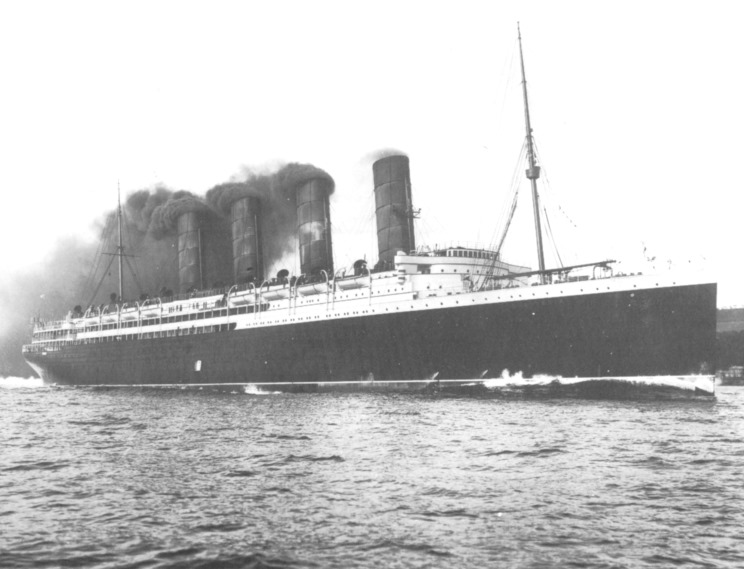


Jack Cornwall, ship boy (16) on board of HMS Chester.
During the Battle of Jutland in June 1916 his ship was hit and put afire by German shells. In the chaos one gun kept firing at the Germans. It was manned by 16 years old Boy Jack Cornwall. Jack was wounded but he kept on firing until he died. He was posthumously awarded the Victoria Cross.


Young American sailor of the Great War
In the USA enlisting of underage boys was an old custom.
Heaven knows how many underage American kids served in the Great War. We only know it didn't end there. In the Second Worldwar the youngest US serviceman was 12 year old Calvin Graham, who served with the US Navy. Assigned to the USS South Dakota he was wounded at Santa Cruz and given a Dishonorable Discharge for lying about his age.

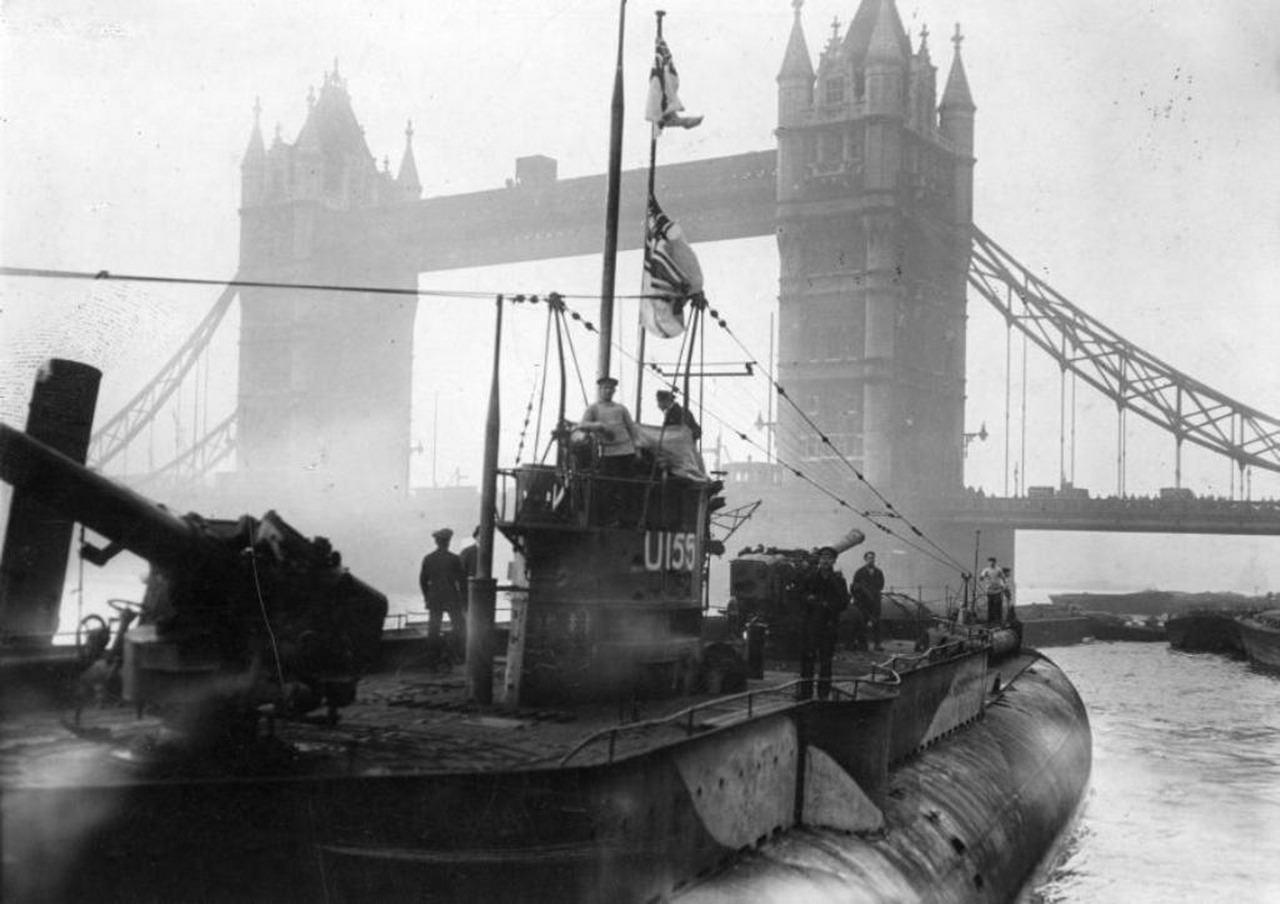

Men in Melbourne collecting recruitment papers

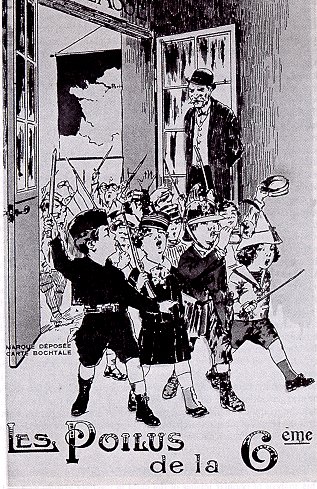

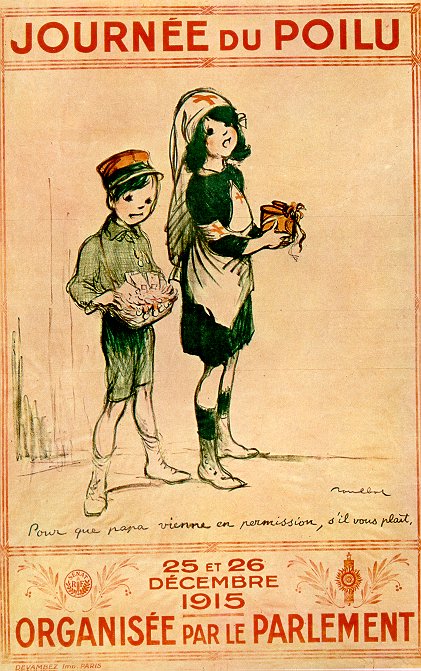
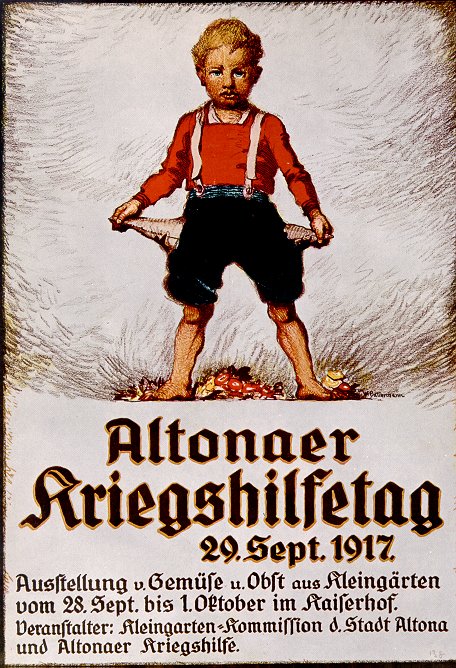
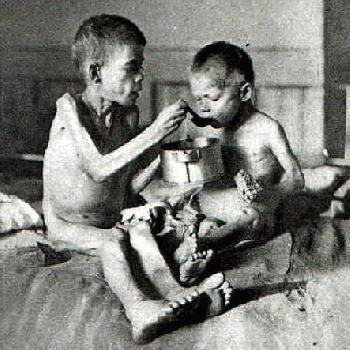
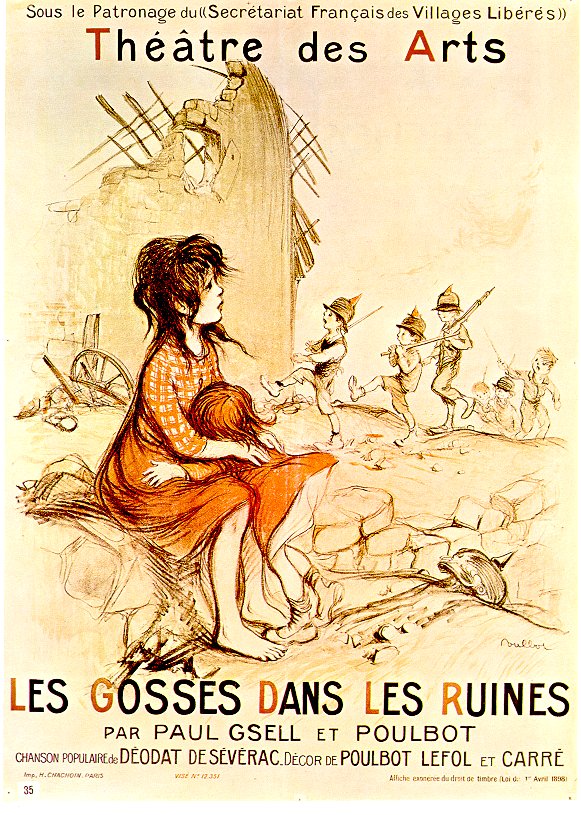
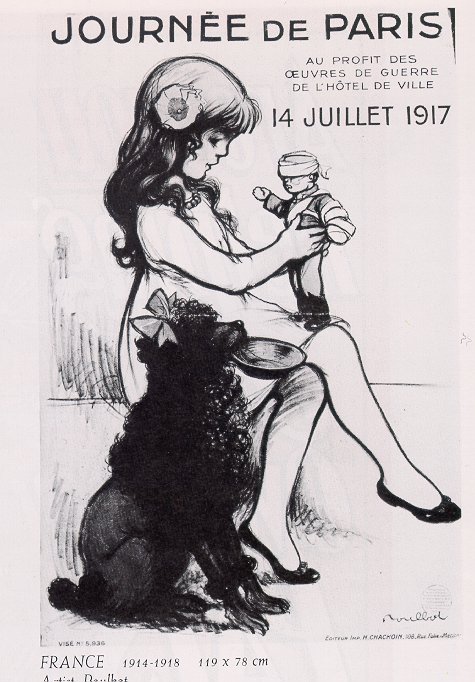



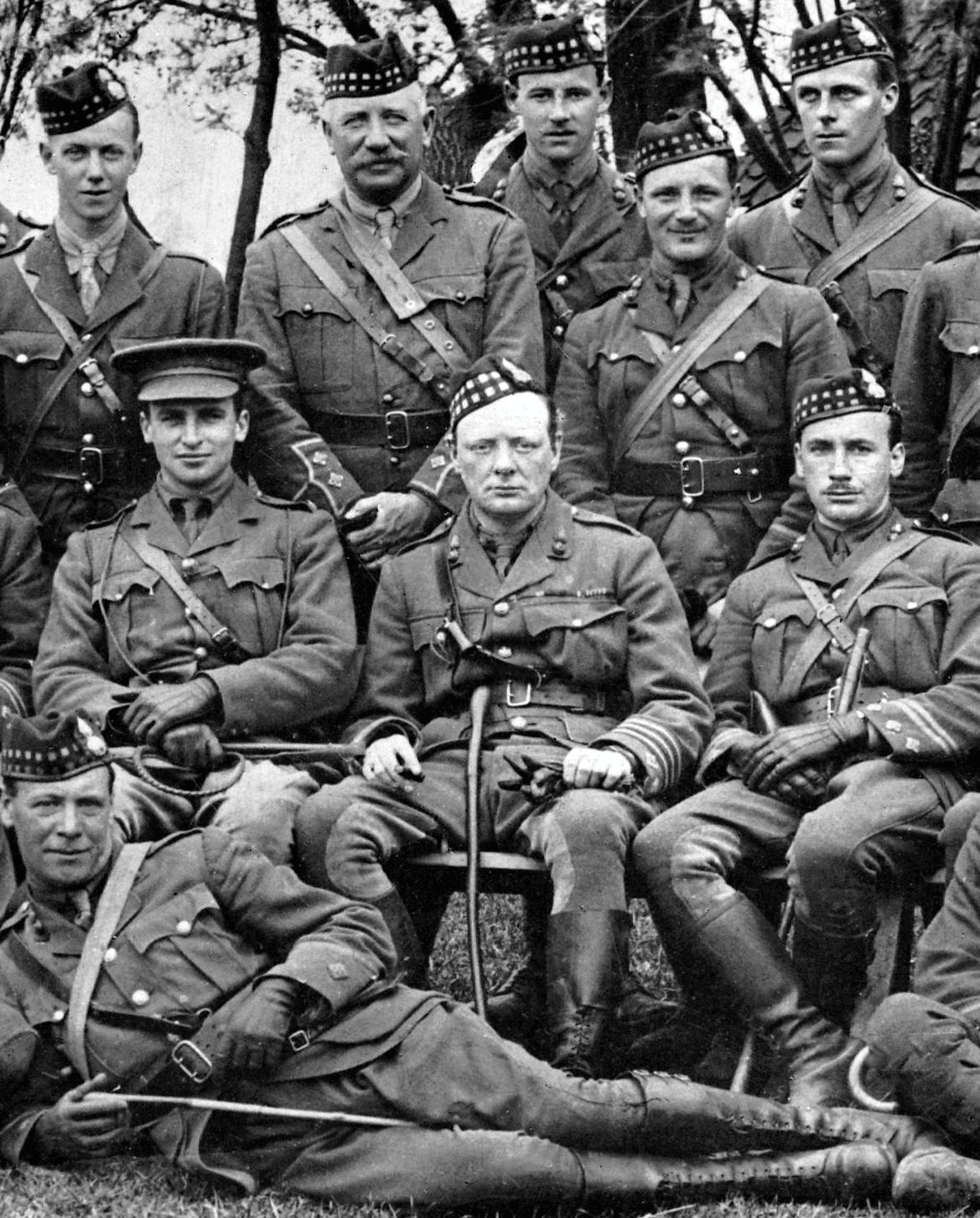
Sir Winston Churchill with theRoyal Scots Fusiliers, 1916

The King of Saxony with von Hindenburg and Ludendorf



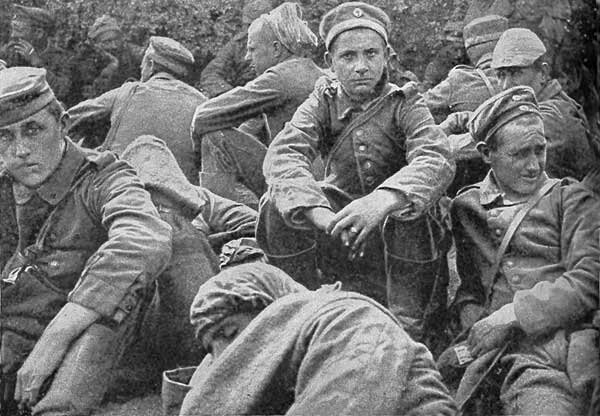
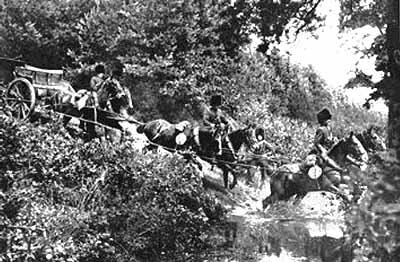
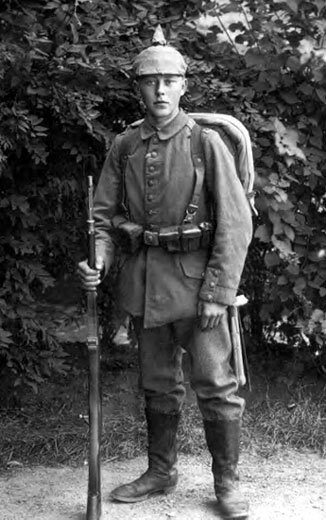






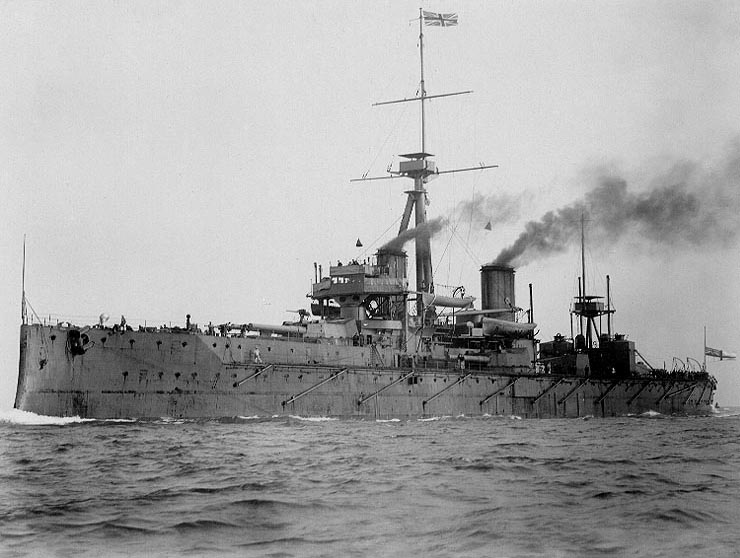

He thought how 'Jack', cold-footed, useless swine,
Had panicked down the trench that night the mine
Went up at Wicked Corner; how he'd tried
To get sent home, and how, at last, he died,
Blown to small bits. And no one seemed to care
Except that lonely woman with white hair.

Mother! Mother!
Grieve not over my bones
Scatter not the precious tears
Mourn not alone, Mother!
Take hold of my shredded turban
Escort me to my garden!


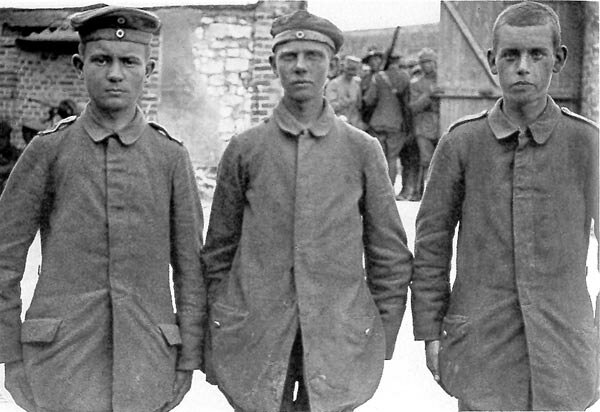
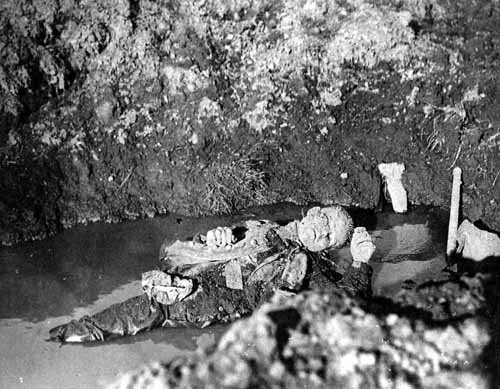
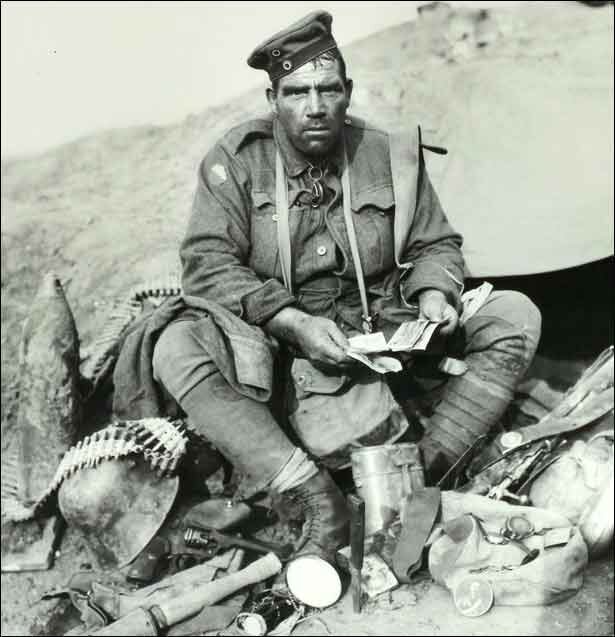
His name was John (Barney) Hines and he was an Australian soldier. Picture probably made after the Battle of Polygon Wood, near Ypres, Flanders, 1917.
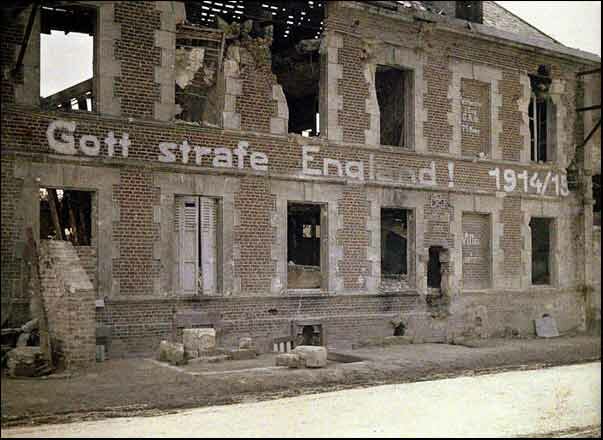

An Austrian armored train in the Carpathian
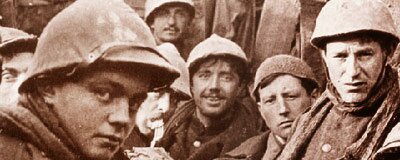
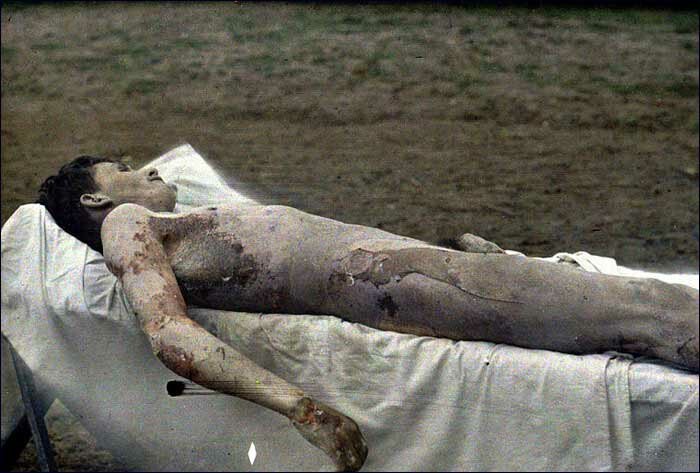
This is a French medical picture, made on March 31, 1918. The dead man is a French soldier of the 99th Infantry Regt., who was killed by German mustard gas. The gas not only burned his lungs and intoxicated him, but also tore his skin apart.
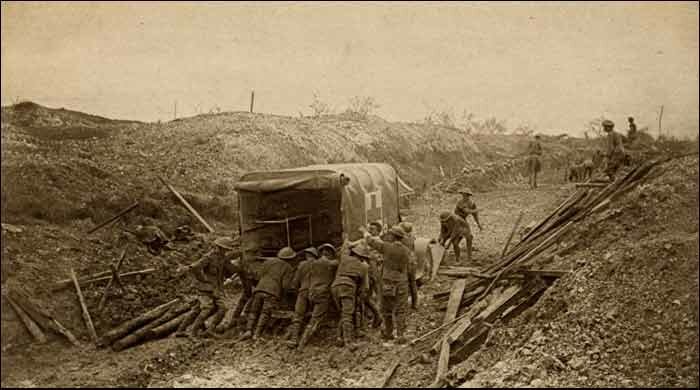
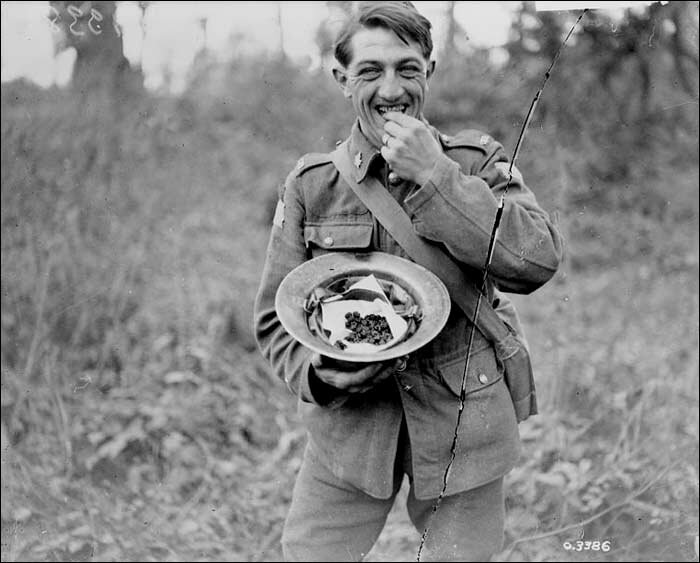
Canadian soldier enjoying blackberries he just gathered in Bourlon Wood. Picture made in October 1918.
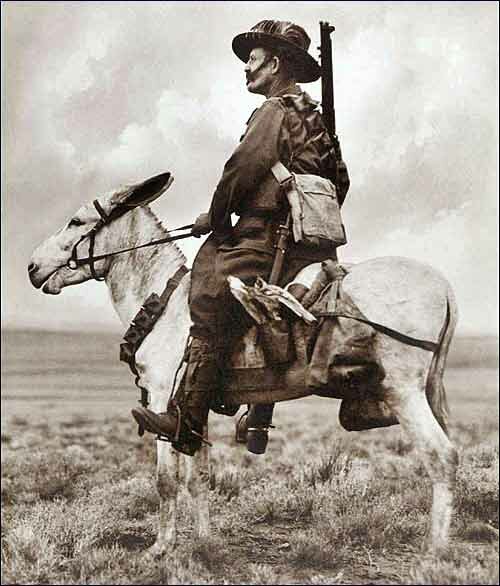
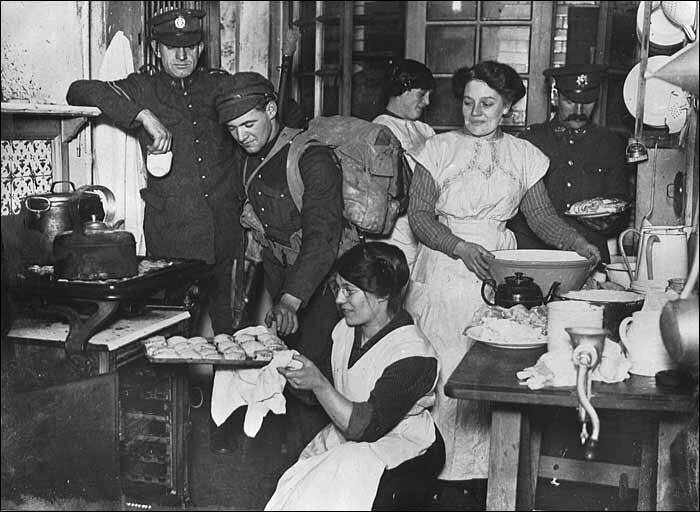
The Aldwych was one of the night hostels which the YMCA opened for troops to stay in London. The hostels were near London Bridge and near the Euston, Waterloo, Kings Cross and other stations.
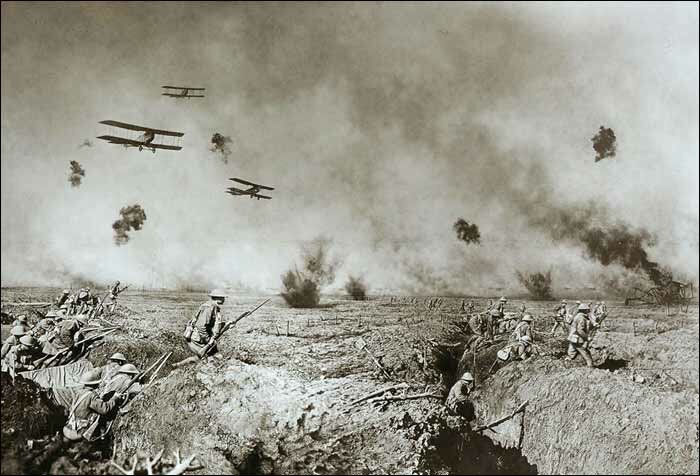
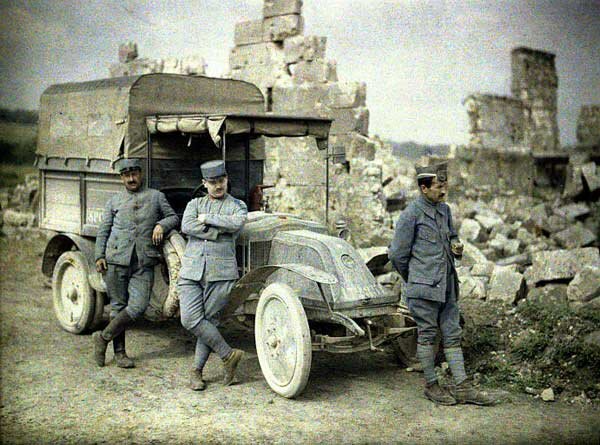
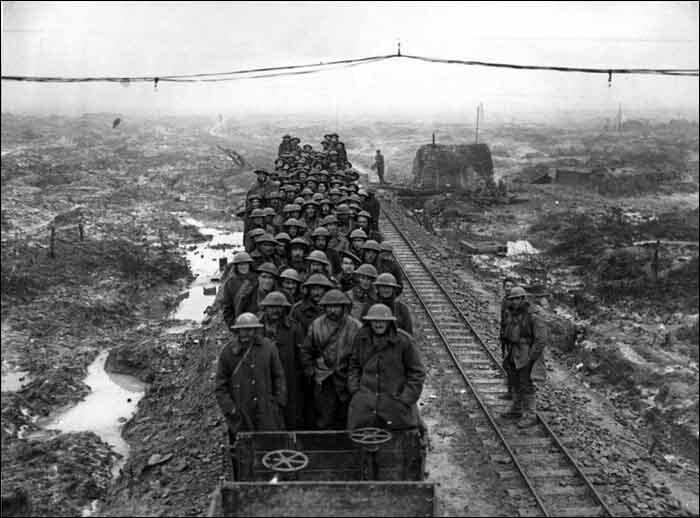

He sat in a wheeled chair, waiting for dark,
And shivered in his ghastly suit of grey,
Legless, sewn short at elbow. Through the park
Voices of boys rang saddening like a hymn,
Voices of play and pleasure after day, (5)
Till gathering sleep had mothered them from him.





Dead German boy-soldier
Sometimes whole schoolclasses enlisted together – and died together

Bent double, like old beggars under sacks,
Knock-kneed, coughing like hags, we cursed through sludge,
Till on the haunting flares we turned our backs
And towards our distant rest began to trudge.
Men marched asleep. Many had lost their boots
But limped on, blood-shod. All went lame; all blind;
Drunk with fatigue; deaf even to the hoots
Of disappointed shells that dropped behind.

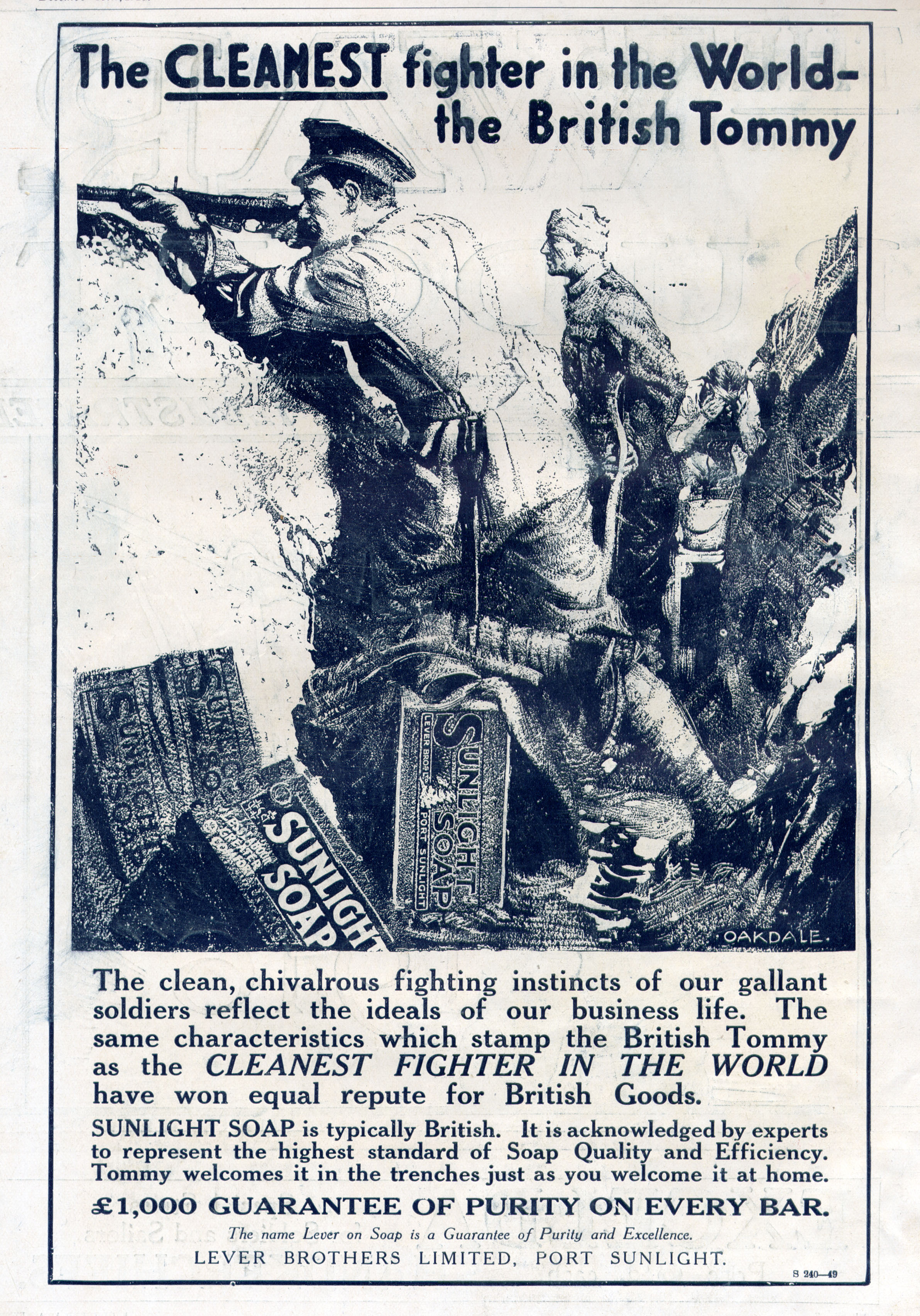



About this time Town used to swing so gay
When glow-lamps budded in the light blue trees,
And girls glanced lovelier as the air grew dim, –
In the old times, before he threw away his knees. (10)
Now he will never feel again how slim
Girls' waists are, or how warm their subtle hands.
All of them touch him like some queer disease.




They ask me where I've been,
And what I've done and seen.
But what can I reply
Who know it wasn't I,
But someone just like me,
Who went across the sea
And with my head and hands
Killed men in foreign lands...
Though I must bear the blame,
Because he bore my name.

A doughboy (WWI soldier) exhibits mustard gas burns
GAS! Gas! Quick, boys!—An ecstasy of fumbling,
Fitting the clumsy helmets just in time;
But someone still was yelling out and stumbling
And floundering like a man in fire or lime.—
Dim, through the misty panes and thick green light
As under a green sea, I saw him drowning.

His wild heart beats with painful sobs,
His strin'd hands clench an ice-cold rifle,
His aching jaws grip a hot parch'd tongue,
His wide eyes search unconsciously.
He cannot shriek.
Bloody saliva
Dribbles down his shapeless jacket.
I saw him stab
And stab again
A well-killed Boche.
This is the happy warrior,
This is he...
German prisoner: a child's face, hardened baby fat.
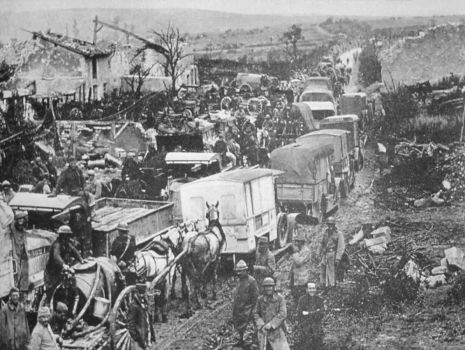
There was an artist silly for his face,
For it was younger than his youth, last year. (15)
Now, he is old; his back will never brace;
He's lost his colour very far from here,
Poured it down shell-holes till the veins ran dry,
And half his lifetime lapsed in the hot race
And leap of purple spurted from his thigh. (20)


One time he liked a blood- smear down his leg,
After the matches, carried shoulder-high.
It was after football, when he'd drunk a peg,
He thought he'd better join. – He wonders why.
Someone had said he'd look a god in kilts, (25)
That's why; and maybe, too, to please his Meg,
Aye, that was it, to please the giddy jilts
He asked to join. He didn't have to beg;
Smiling they wrote his lie: aged nineteen years.







HMS Furious with Sopwith Camels ready for takeoff





Germans he scarcely thought of; all their guilt, (30)
And Austria's, did not move him. And no fears
Of Fear came yet. He thought of jewelled hilts
For daggers in plaid socks; of smart salutes;
And care of arms; and leave; and pay arrears;
Esprit de corps; and hints for young recruits. (35)
And soon, he was drafted out with drums and cheers.






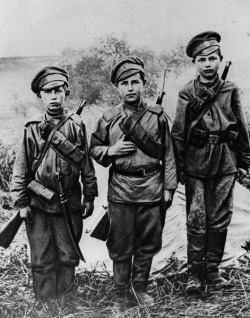


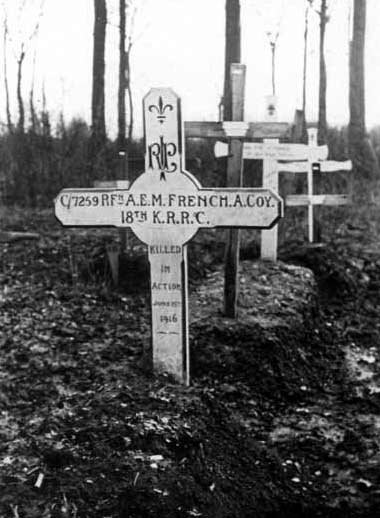
Wooden cross on the grave of Albert French, 16 years old.
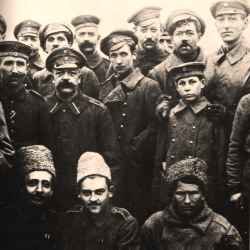
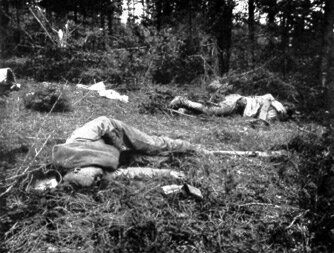
French boys, fallen
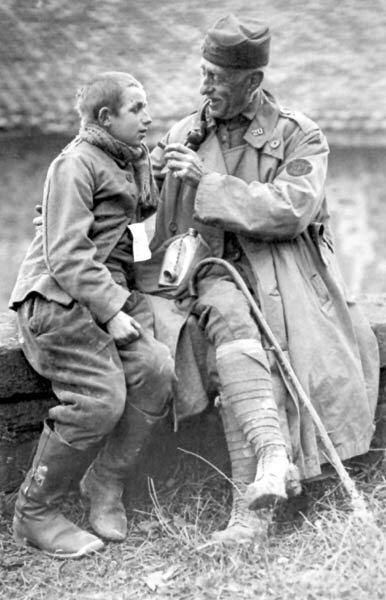


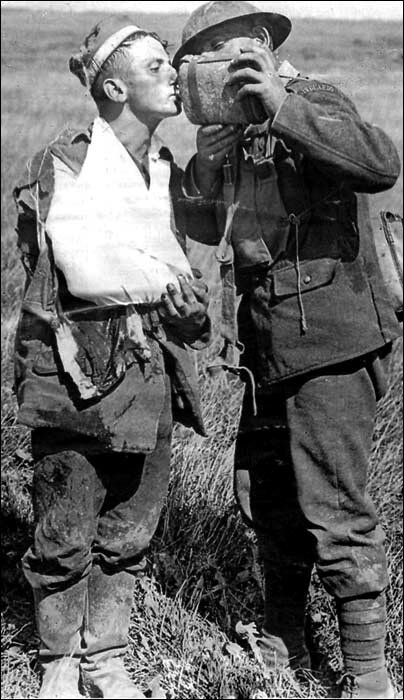



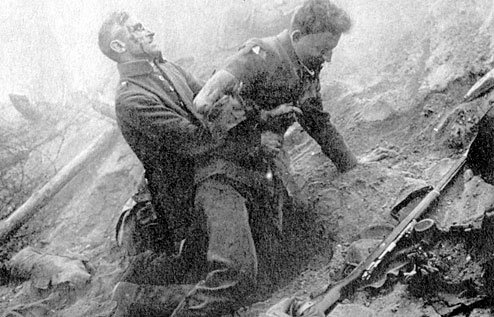


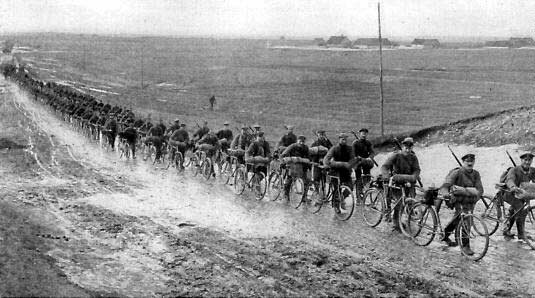
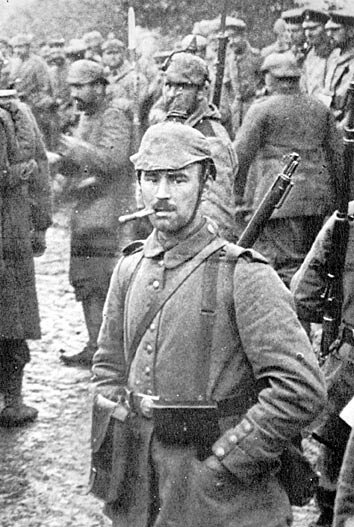
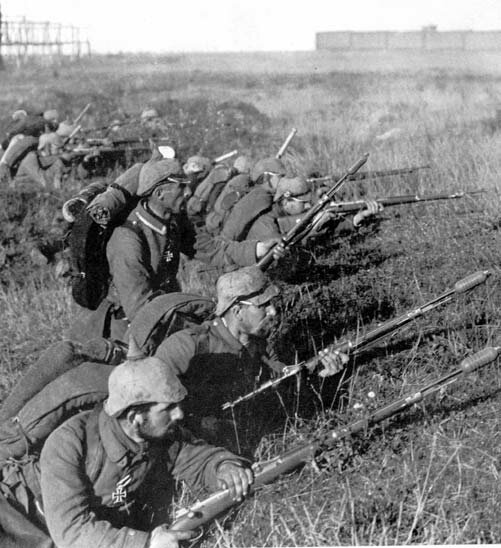













Some cheered him home, but not as crowds cheer Goal.
Only a solemn man who brought him fruits
Thanked him; and then enquired about his soul.
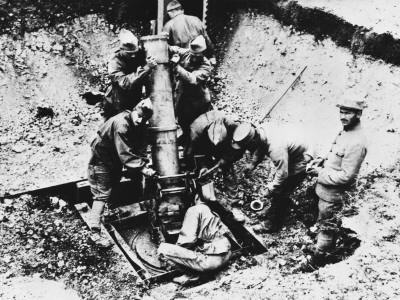


Now, he will spend a few sick years in institutes, (40)
And do what things the rules consider wise,
And take whatever pity they may dole.
Tonight he noticed how the women's eyes
Passed from him to the strong men that were whole.
How cold and late it is! Why don't they come (45)
And put him into bed? Why don't they come?


Comrade, I did not want to kill you. . . . But you were only an idea to me before, an abstraction that lived in my mind and called forth its appropriate response. . . . I thought of your hand-grenades, of your bayonet, of your rifle; now I see your wife and your face and our fellowship. Forgive me, comrade. We always see it too late. Why do they never tell us that you are poor devils like us, that your mothers are just as anxious as ours, and that we have the same fear of death, and the same dying and the same agony—Forgive me, comrade; how could you be my enemy?

Just as we turn into animals when we go up to the line . . . so we turn into wags and loafers when we are resting. . . . We want to live at any price; so we cannot burden ourselves with feelings which, though they may be ornamental enough in peacetime, would be out of place here. Kemmerich is dead, Haie Westhus is dying . . . Martens has no legs anymore, Meyer is dead, Max is dead, Beyer is dead, Hammerling is dead . . . it is a damnable business, but what has it to do with us now—we live.

So we crashed round the bend,
We heard his weak scream,
We heard his very last sound,
And our wheels grazed his dead face.
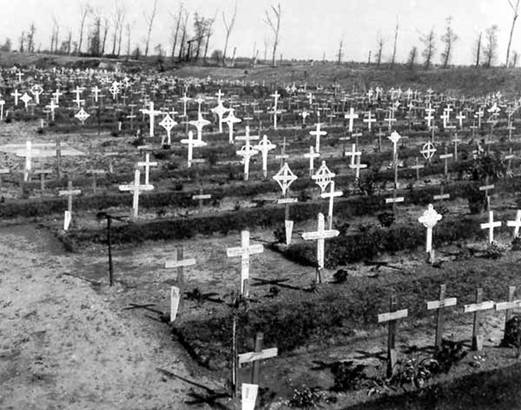

There's a soul in the Eternal,
Standing stiff before the King.
There's a little English maiden
Sorrowing.
There's a proud and tearless woman,
Seeing pictures in the fire.
There's a broken battered body
On the wire.

During the fighting in Europe against the German Army in WW1, a number of soldiers from the British Army were executed at dawn, they were deserters, or shot for cowardice against their enemy. Special firing squads of 12 were selected to carry out the dreadful order to execute as many as 306, some of them as an individual in these death squads were forced to shoot their best friend.
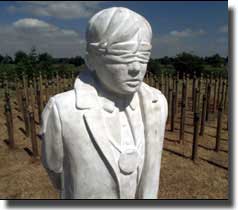
The Memorial in England for those Shot At Dawn in WW1.
The ‘Shot at Dawn’ memorial to the 306 executed soldiers
at the National Memorial Arboretum in Staffordshire England.
 |
| Above: Herbert Norris, Jamaican 17 year old child soldier, executed 1917. The number of soldiers executed by their own officers in WWI is unknown, since most of the armies involved still classify those figures as secret. The known cases number in the thousands. The French 'decimation', resorted to on occasion, actually involved the execution of every tenth man. |
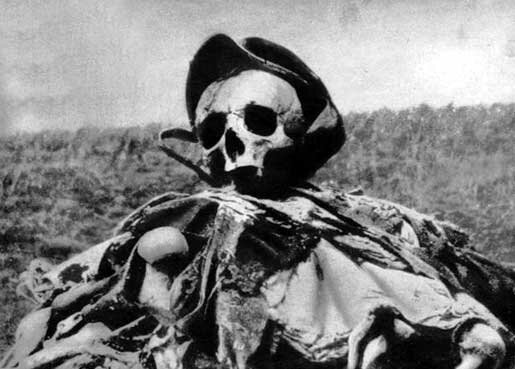
To gain but 12 kilometres of territory, 630,000 died or were wounded, the war had turned from the offensive to the defensive, both sides dug in, in trenches stretching across France, facing each other. Night patrols would creep out to probe the opposition, also to cope with the worry of poison gas introduced at Ypres.
The practice of executing soldiers found guilty of dereliction of duty went on right to the end of WW1, only four days before the armistice on the 11th. of November 1918, two soldiers died at dawn for desertion.
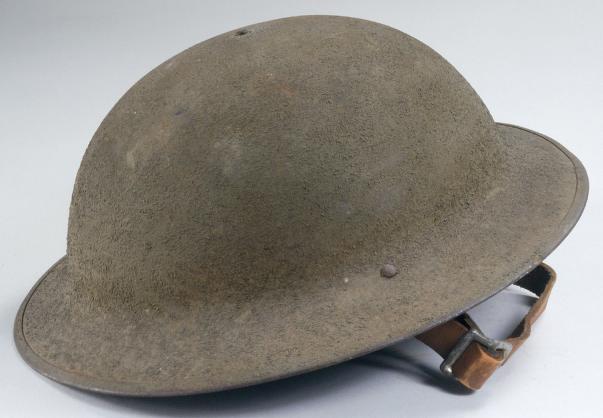
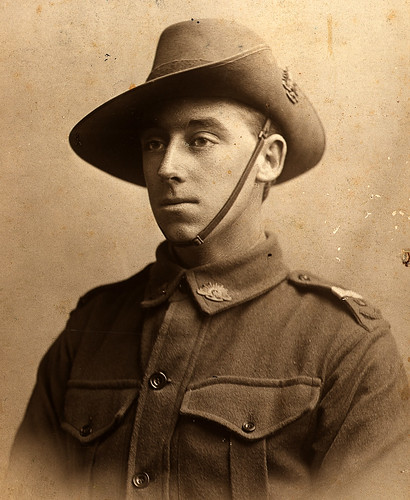


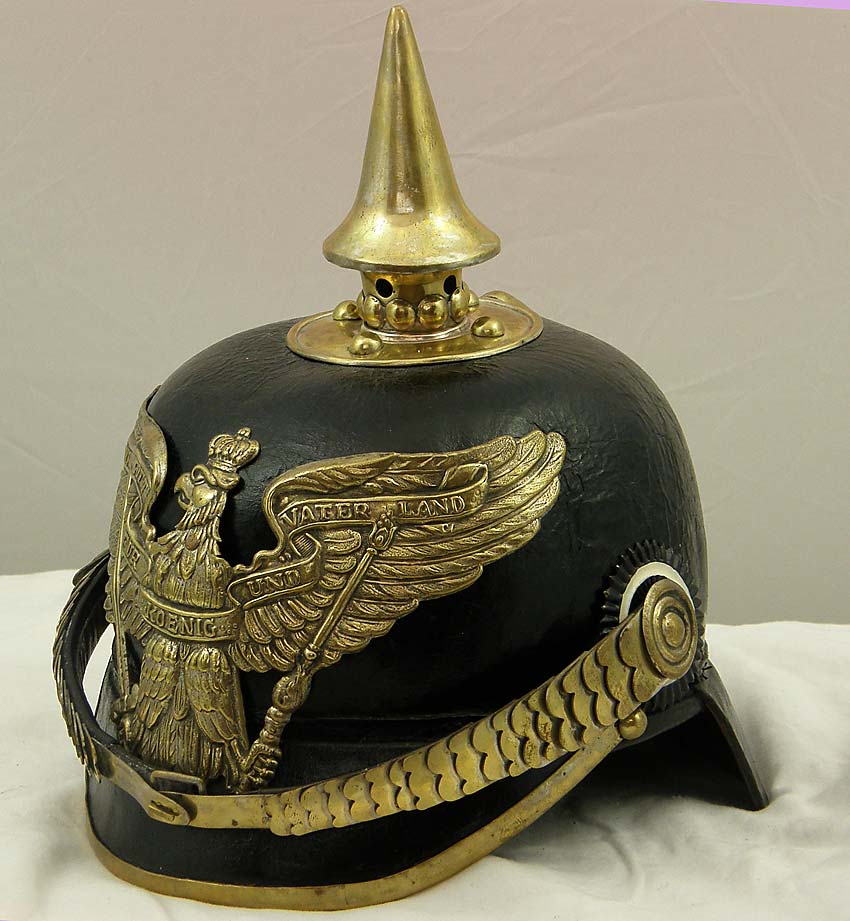


To children ardent for some desperate glory,
The old Lie:
Dulce et decorum est
Pro patria mori.
The Latin translates as “It is sweet and proper to die for one’s country.”

Where have all the young men gone?
Long time passing
Where have all the young men gone?
Long time ago
Where have all the young men gone?
Gone for soldiers every one
When will they ever learn?
When will they ever learn?
Where have all the soldiers gone?
Long time passing
Where have all the soldiers gone?
Long time ago
Where have all the soldiers gone?
Gone to graveyards every one
When will they ever learn?
When will they ever learn?
Where have all the graveyards gone?
Long time passing
Where have all the graveyards gone?
Long time ago
Where have all the graveyards gone?
Covered with flowers every one
When will we ever learn?
When will we ever learn?
From WHERE HAVE ALL THE FLOWERS GONE
Pete Seeger


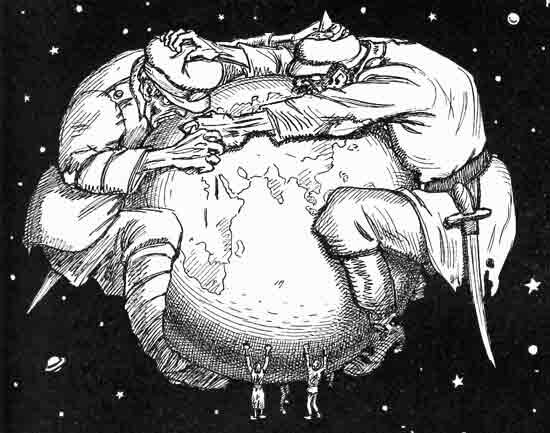

haunting
ReplyDelete